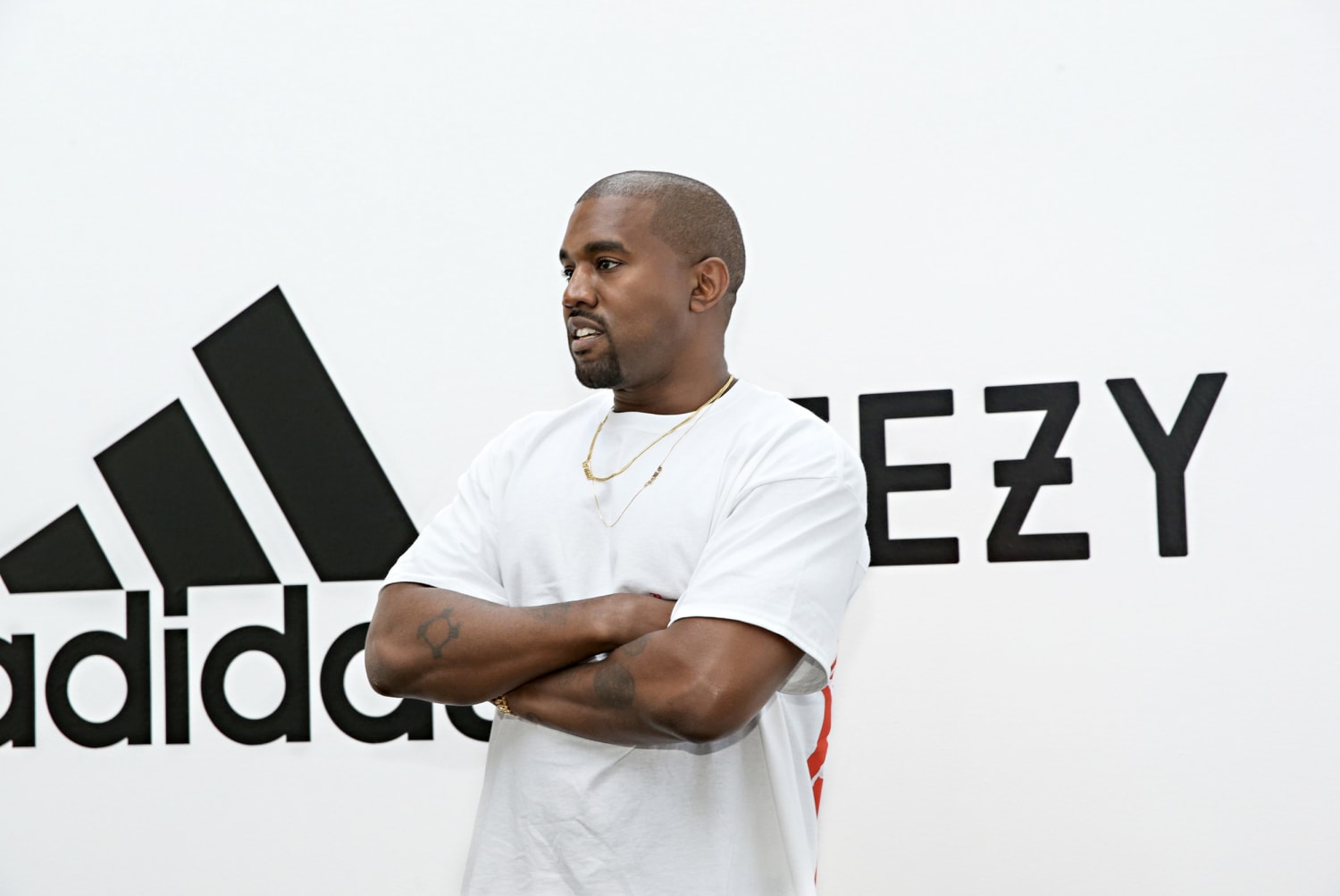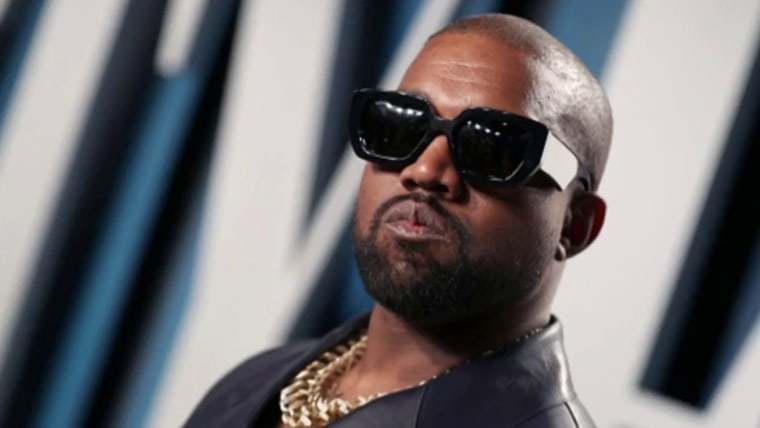After weeks of inaction, Adidas on Tuesday finally dropped its partnership with the proud antisemite Ye, aka rapper Kanye West. In a statement, the company said it “does not tolerate antisemitism and any other sort of hate speech. Ye’s recent comments and actions have been unacceptable, hateful and dangerous, and they violate the company’s values of diversity and inclusion, mutual respect and fairness.”
In response, the American Jewish Committee said it welcomed “the decisive if belated action.” Indeed, the move came far too late. The delay suggests the company may have been willing to tolerate at least some antisemitism. It damaged the Adidas brand — as well as the effort to thwart antisemitism. Not taking immediate action only allows conspiracies about Jews to metastasize.
If these antisemites actually face consequences for their bigotry, they call it proof of Jewish power.
Adidas had put its relationship with Ye “under review” on Oct. 6, following the performer’s public criticism of the German company for allegedly not giving him enough control over his Yeezy line of shoes and clothes, which the sportswear business has called its most successful collaboration.
The next day, for no apparent reason, Ye took to social media to lash out at Jews, and over the following week accused them repeatedly of controlling the music industry and threatened to go “death con 3 on JEWISH PEOPLE.”
Instagram and Twitter took down some of his posts and restricted his accounts, but throngs of followers had already seen what he had to say — he has at least twice as many followers as the global Jewish population of 15 million. In the ensuing days, numerous businesses dropped him, including Balenciaga, Foot Locker and talent agency CAA. Ye and Gap parted ways last month, and the company removed the last of its stock of his Yeezy line on Tuesday.
But Adidas sat on its hands, despite being his most prominent vehicle. It’s the company that made him a billionaire and is responsible for the vast majority of his wealth, according to Forbes. It was a test case to see whether corporations are willing to take strong stances that can do real damage to the bottom line of a hatemonger, but also their own.
As a result, calls for a boycott trended on social media, with the Anti-Defamation League launching a campaign to pressure Adidas to “#RunAwayfromHate.” Well-known figures in entertainment, media and politics — Jewish and non-Jewish — spoke out, including actresses Kat Dennings and Valerie Bertinelli, Donald Trump impeachment witness Lt. Col. Alexander Vindman and former MSNBC host Keith Olbermann.
As The New York Times’ Dealbook noted, Adidas’ stock “dropped 23 percent over the past month as Ye’s erratic behavior drew criticism.” The company said it took the step of breaking with Ye after “a thorough review.” Its actions at this late date suggest it was motivated more by money than principle. If the company had acted more quickly, it might have avoided this perception. And either way, it would have done more to nip antisemitic conspiracy theories in the bud.
Jew hatred comes in many forms. One of the most common revolves around an imaginary reality. Antisemites say that Jews secretly control everything — media, government, banks, you name it — and cause all the world’s problems.
If these antisemites actually face consequences for their bigotry, they call it proof of Jewish power. As The Atlantic’s Yair Rosenberg explained, “It’s a self-fulfilling conspiracy theory that provides its own evidence and can never be falsified in the mind of the anti-Semite.”
In a series of interviews this month, Ye expressed this philosophy. In one with Fox News’ Tucker Carlson, he said some things that were so extreme they weren’t even aired — despite Carlson having his own disturbing record of antisemitism. Some removed clips were later leaked to Vice, which explained that Ye offered up a mishmash of conspiracy theories, including the ideas that non-Black Jewish people aren’t really Jewish and that Jews control the financial system.
Throughout, Ye portrayed himself as a “freedom fighter,” thereby completing the conspiracy theory cycle by declaring himself the man standing up to those imaginary all-powerful Jews.
Meanwhile, not a word from Adidas. Crickets. An Adidas director was one of those who publicly called out the company for this silence. Ye, for his part, bragged on a podcast, “I can literally say antisemitic s— and they cannot drop me.” Six days after that, the company finally did.
It’s better that Adidas did this late than never, yes. But the delay fuels the antisemitic narrative by suggesting Adidas took this step reluctantly and only under pressure. That leaves the door open to the idea that behind-the-scenes machinations and calculations were at play, feeding antisemites’ belief that it’s only when Jewish people pull strings that anything is done.
As a company with its own Nazi history, Adidas had every reason to know the dangers of letting antisemitism grow and fester.
Rabbi Abraham Cooper, director of global social action at the Simon Wiesenthal Center, which fights antisemitism, told me he agrees that Adidas’ lack of immediate action had this effect. Also, he said, faster action and condemnation from even more people, including elected officials, could have sent “an unmistakable message” to Ye: “‘You crossed the line. You sowed and so now you will reap.’ Perhaps he would have stopped before going over the cliff.”
In the meantime, some hate groups used Ye’s rhetoric to fuel their efforts. A Nazi group on Saturday hung a banner over a Los Angeles freeway reading, “Kanye is right about the Jews.”
Antisemitism is growing rapidly, inspiring violent, deadly attacks in the United States and across the globe. According to the ADL, they reached an all-time high in the U.S. last year. Jewish people make up about 2% of the United States, but experience the vast majority of hate crimes based on religion.
As a company with its own Nazi history, Adidas had every reason to know the dangers of letting antisemitism grow and fester. The company was founded by two German brothers who joined the Nazi party, the Jewish Telegraphic Agency reported. It’s a fact that should make Adidas the first business to act against antisemitism on its watch.
Source: | This article originally belongs to Nbcnews.com










